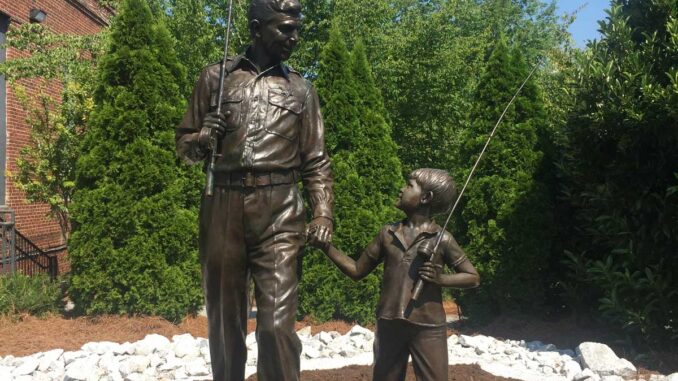
CBS‘ heavily promoted new Matlock, getting a Sunday September tease well ahead of its regular October premiere, probably is not the show you’re expecting it to be.
Except now that I’ve told you that, you’re adjusting your expectations for Matlock, so now it may be exactly what you’re expecting.
Sorry. Obviously stop reading if this feels more spoiler-y than what you’re looking for … in a Matlock review.
Coyness is key with the new series, which thus far has been accumulating press mostly for star Kathy Bates’ promise that this may be her last acting role (though given the lifespan of some CBS procedurals, this farewell could carry Bates well into her 80s). Or at least it is for the first episode; after that, the show simply is what it is. I’ll just note that revealing what the new Matlock actually is would probably attract some viewers with no interest in a Matlock reboot, while alienating some viewers with a passionate interest in a Matlock reboot.
See what I’m saying?
I’ll try a bit more, while also trying to avoid giving away too much, with this simple summation: I liked Matlock significantly more than I expected to, but my interest was beginning to wane by the last of the six installments sent to critics.
Bates plays Madeline Matlock — “Matty” for short, according to CBS’ preference, though it could just as easily be “Maddy” — a widow who arrives in New York City from somewhere in the nebulous Deep South (“Georgia,” maybe). Facing debt and parental responsibilities to her grandson (Aaron D. Harris’ Alfie), Matty decides to return to practicing law for the first time in 30 years.

Aiming right for the top, Matty gets an initially temporary gig at Jacobson Moore, a prestigious firm with a lucrative corporate department. She’s assigned to Olympia (Skye P. Marshall), a junior partner who was once a rainmaker but has begun to take interest in more personal cases and charitable cases, much to the chagrin of her caring soon-to-be-ex hubby Julian (Jason Ritter), son of the firm’s appropriately named senior partner Senior (Beau Bridges).
A wee bit more advanced in age than your typical new associate, Matty is treated with instant distrust by Olympia’s more ambitious associate, Sarah (Leah Lewis), and with immediate affection by her less ambitious associate, Billy (David Del Rio). She quickly proves her worth through her ineluctable ability to get strangers to discuss the classic television show Matlock, which exists in this universe primarily as a reference that older people get and younger people do not.
See (and this is not a spoiler), Matty is not a gender-swapped version of Andy Griffith’s Ben Matlock, memorable for his natty suits, probing cross-examinations and wily inversions of geriatric tropes. No, she’s a 75-year-old woman known for coincidentally sharing a last name and a tendency toward wily inversions of geriatric tropes with a fictional character. She notes that when women reach a certain age, they achieve a level of invisibility, which she wields as her superpower when she isn’t using her ready supply of butterscotch candies and her generally grandmotherly aura.
So there are traces of the original here, but even without getting to the true show beyond the basic premise, what this Matlock is more likely to remind you of is a less intricate, less politically oriented, generally lighter version of CBS’ The Good Wife. It’s a fish-out-of-water dramedy in which the fish is older and less urbane than the fish around her and doesn’t always understand newfangled fish technology, but comes with a native set of skills and connections that ensure almost immediately that her peculiarities are an asset.
Matlock was developed (with credit to the original’s creator, Dean Hargrove) by Jane the Virgin creator Jennie Snyder Urman, who has worked in procedurals before but is much more of a character-centric writer. For at least a few episodes, it’s a tremendous boon. Matty is a complex lead and even, at times, a truly funny one. She’s positioned to play enough mind games that it’s completely understandable why the project would have attracted Bates. The Harry’s Law veteran (and, sure, Oscar winner and whatnot) gets big speeches and alternating silly and very serious beats as part of the narrative’s expansion beyond a case-of-the-week format.
